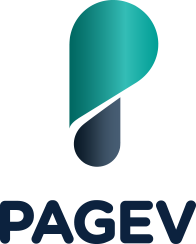2nd version of the ChemOrbis Poliolefin Conference was held at Gaziantep Divan Otel on 28 April 2015 with participation of 240 representatives from 142 companies. First session of the conference began with a presentation by WoodMackenzie's Head of Chemical Research Alex Lidback. Lidback gave a speech on changes in the global ethylene and propylene markets following the sliding oil prices. "WoodMackenzie expects that oil cost base will be reset to $100/ton in 3-5 years" said Lidback during his presentation. Lidback also projected that global ethylene demand would increase up to 5-6 million tons/year, creating a global demand for 3-4 new cracking plants.
Meanwhile, USA will have to export 10-15 million tons of ethylene derivative products every year thanks to the capacity increase projects. Lidback expects that, as a result of these capacity increase projects, USA's top exporter Latin America will not be able to handle this extra production, and Asia will be USA's top exporter region. According to WoodMackenzie, however, USA's ethane advantage against ethylene declined to $230/ton in January 2015 from $800/ton in September 2014.
The Chief Project Director of TYDTA (Turkish Investment, Support and Promotion Agency) Necmettin Kaymaz gave a presentation after Lidback. Underlining that global economy will grow 3.5 percent in 2015, Kaymaz explained positive effects of declining oil prices on many countries including Turkey, and continued his words: "Developing countries of the Mediterranean region will achieve a sparkling growth. Developed countries of the region will try hard to sustain their growth. GDPs of Egypt, Turkey and Italy are expected to increase 4.6%, 3.5% and 1%, respectively, between 2015-2020." Kaymaz underlined that global growth will focus on Asia-Pacific rather than Atlantic, changing the economy center of the world.
Participants found a great opportunity to connect with each other during the coffee break. Second session part of the conference began with the Deputy Chairman and Member of Executive Board of NPC-National Petrochemical Company M.H. Peyvandi's speech about the status quo of the petrochemical industry in Iran and future expectations. Peyvandi said that Iran could increase their capacity of annual petrochemical production by 5% up to 60 million tons, reminding that Iran could produce only 18.2 million tons in 2004. According to Peyvandi, Iran wants to increase their ethylene capacity by 4 million tons/year, naphta capacity by 5 million tons/year and propane and butadiene capacities by 2 million tons/year with new projects. Peyvandi announced that methanol capacity in Iran will increase up to 25 million tons/year in five years, effecting global petrochemical markets. Iran expects to benefit from more opportunities for new channels of investment after mitigation of the sanctions applied on the country.
The Chairman of the Executive Board of PAGEV Yavuz Eroğlu made a presentation after Peyvandi. Eroğlu talked about their "Merhaba" Integrated Plastics Park (IPP) to be built Gaziantep, the #1 city for PP consumption. Eroğlu emphasized that Saudi Arabia is one of the most important petrochemical producers in the world with a very limited plastics processing capacity. Eroğlu said that Turkey is the biggest plastics processing country in the Middle East is third in Europe, but can domestically meet only 12 percent of its raw material needs. Eroğlu continued his words, "In order to establish a petrochemical park as part of the Merhaba Project, we want to bring these two actors together in Gaziantep." During his presentation 'Gaziantep: MERHABA to the Integrated Plastics Production Center of the World', the Chairman of the Executive Board of PAGEV Yavuz Eroğlu shared all details on the topics such as 'Turkish Plastics Industry Overview', 'Gulf Countries Plastics Industry Overview', 'Merhaba IPP (International Plastics Project) Overview', 'Global Center of the Polypropylene: Gaziantep' and 'the Project that Gaziantep Deserves: MERHABA'.
After the lunch break, third session started with a panel about the new price indicators for PP in Turkey. New cost calculations depending on increases in the new propylene-based investments, freight fees receding from China and Asia to Turkey, demand growth in Turkey and the regional supply chain, and importance of ASEAN for China as a price reference for Turkey were discussed in detail.
On behalf of the Media Sponsor PAGEV, Secretary-Member of Executive Board Cemil Çakar received plaque from CEO of ChemOrbis Alp Özdenler.
Petkin Holding SOCAR Turkey made a presentation at the conference too. Marketing and Consumer Affairs Director Dr. Mevlüt Çetinkaya defined Turkey as the world's second biggest petrochemical importer after China. Çetinkaya also talked about the Transatlantic Trade and Investment Partnership (TTIP) Agreement and potential effects of this agreement on the global markets in the foreseeable future. According to Çetinkaya, this agreement will change global trade dynamics since America and Europe will increase their competitiveness over Asia-Pacific region.
After Petkim, the Commercial Director of Jam Propylene Co. Kambiz Mirkarimi took the stage for his presentation. Mirkarimi said that Iran exported more and more polyolefin every year while importing less. He stated that Iran exported over 2 million tons of PE in 2014 compared to 1,600 tons in 2011. And Iran exported 1.6 million tons of PP in 2014 compared to 55,000 tons in 2011. Mirkarimi also talked about transportation problems at the Iran-Turkey border, and defined 'strict bureaucracy' as the factor cramping an increase in the commodity exchange volume between two countries. Iran is one of the top three countries that supply PP to Turkey –world's #3 PP importer.
Last speaker at the conference was the Founder of Borruso Polymers Andrea Borruso. He said that declining oil incomes might have dilatory effects on the investments in USA, China and Russia, and push Russian and Iranian businessmen make aggressive petrochemical sales. According to Borruso, irregular supply from Iran and Russia could narrow the price gap between South-Eastern Asia and Turkey; and Turkey could set more steady prices in a short time without any pricing power.
At the 2nd ChemOrbis Poliolefin Conference, participants found a chance to talk face-to-face and network during the coffee breaks open-buffet lunch and the cocktail.

